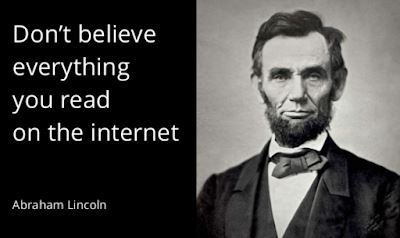Father’s Day is coming and I thought I would research and write a piece about the origins of Father’s Day. As you will soon see, this led me to another topic altogether.
I take fatherhood very, very seriously, but Father’s “Day” means very little to me. I don’t need my own “day” to remind me of my responsibilities or to be “honored” by my children.
I frankly feel the same way about Mother’s Day, but I celebrate that day anyway. That’s because both my mother and the mother of my children expect to be honored on Mother’s Day. If they want it to be a special day, then I have to treat it as special. It’s the only way to keep peace in the family.
I also assumed that Father’s Day was the invention of the greeting card industry, and supported primarily by manufacturers of electric shavers, neckties and power tools.
And so I was a bit surprised to learn that Father’s Day was the creation of a daughter in Spokane, Washington, The woman, Sonora Smart Dodd, thought of the idea while listening to a Mother’s Day sermon in 1909. She felt it appropriate to honor her father, a civil war veteran, Henry Jackson Smart.
(It may be that the First Father’s Day celebration was the year before in West Virginia, but Sonora Smart Dodd is still credited with spreading the idea.)
Newspapers picked up the story and the idea caught on. In 1924, President Calvin Coolidge proclaimed the third Sunday in June as “Father’s Day”. This recognition was repeated by a Joint Resolution of Congress in 1956 and President Lyndon Johnson’s proclamation in 1966. President Richard Nixon made it a permanent national observance in 1972.
I know all of this to be true because it is said so in many different websites.
These include Father’s Day, Love Your Father, and Art of Manliness.
Father’s Day is celebrated throughout the world, although the celebration is at different dates elsewhere. The German’s celebrate Father’s Day on the same day as Ascension Day. For the non-religious reader. Ascension Day commemorates the day Jesus ascended into heaven, which is 40 days after the resurrection (Easter Sunday).

Ascension Day (and thus Vatertag) is always on a Thursday. But the fact that it is a weeknight doesn’t cramp the style of most Germany fathers. Vatertag is closer to a “boy’s day out” or a pub crawl with the guys, than the more family oriented Father’s Day of America. It usually includes a wagon, which makes it much easier for the guys to carry the required amount of beer.
The celebration of Father’s Day and Ascension Day may have been the idea of German socialists. To them, it made sense to steal the religious holiday and convert it into a secular celebration.
I know all of this information to be true as well, since I read it on many different websites.
Actually, I don’t “know” any such thing. What I do know is that it is reported on several websites that Sonora Smart Dodd created Father’s Day to honor her Dad, and that it is reported on several websites that German socialists co-opted a religious holiday and created an excuse to go drinking.

I have no reason to doubt that Mrs. Dodd created Father’s Day. It’s just that I have no evidence to back it up. Wouldn’t it be ironic, and even hilarious, if some guy writing a website made up the whole story, and there wasn’t even a Sonora Smart Dodd? The next person researching the origins of Father’s Day would pick up the first site and repeat the story. Then a third researcher would pick up the two prior sites and repeat them once again. Upon being posted many times on the web, it would be universally accepted as true – and even repeated once again on the Café.
I attempted to verify Mrs. Dodd’s American Father’s Day, and the German socialists’ creation of Vatertag, but I was unable to do so. And therein lies the limitation of the web.
The web is filled with secondary sources – other people’s interpretations of original source materials. The web is also filled with countless “experts”. Anyone, at any time, can write about anything. (Yes, we’re guilty of this at the Wolverine Café.) Neither expertise nor credentials are required.
There may be ways to research these two questions which are beyond my internet skills. The fault may lie in me and not in the web.
But it is extremely tempting to “research” a question by using yahoo or google, and by reviewing the first several hits. This may be sufficient for some projects, but it is not “research” in the more thorough sense of the word.
I’ve often seen newspaper reporters fall into this trap. Misinformation in one story is repeated in story after story. This is simply because reporters “verify” information by looking at prior stories. They never think to go back and verify whether the first story was accurate.
The potential of the web lies in the ability to make original sources readily available, to those who have the need or desire to examine them. Much has been put on the web already and much more is on the way.
For example, one can read the reports of battles and campaigns in the Civil War filed by the participants at the time, in The Official Record of the War of the Rebellion. A list of medieval sources available on the internet is available at this Fordham University site. You can look up virtually every statute and court decision from every state in this Cornell University Law School site.
You may, if you wish, rely upon a weather report. Or you can take a look at the satellite photographs from the National Weather Service or NASA and decide for yourself whether it is likely to rain tomorrow.

Even more original sources will be online upon the completion of the digital library projects. Every text and source within University of Michigan’s library will be digitized and available online. Many universities and public libraries are doing the same thing as part of the Digital Libraries Initiative.
The concept of online libraries boggles the mind. Hopefully search tools will keep up with this process. There will then be vast quantities of materials – from both original and secondary sources – available and readily accessible.
In the meantime, keep this caveat in mind: When searching the web, remain detached and a bit skeptical of secondary sources. The information you see on the web may, or may not, be accurate.
P.S. How do you know that I didn’t make up the bit about the German socialists?
